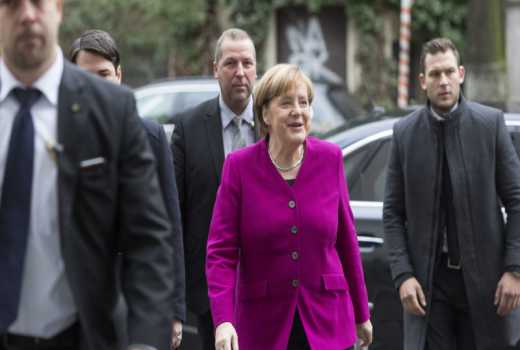×
The Standard e-Paper
Fearless, Trusted News

Chancellor Angela Merkel is optimistic her conservatives and the Social Democrats (SPD) can cut a deal. This she said on Sunday as the parties began five days of talks about reviving the ‘grand coalition’ that has governed Germany since 2013.
Persuading the center-left SPD to team up with her is Merkel’s best bet for forming a stable government and extending her 12 years in office after she failed in November to form an alliance with two smaller parties.